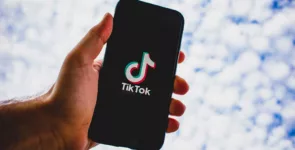A recurring problem, particularly with governments, is that they don’t do causal analysis when it comes to problem solving, and thus tend to focus on the visible symptoms of a problem rather than the causes. This is especially true of the U.S.’s effort to force a leadership change at TikTok.
In the past, regardless of leadership, Social Networks have been compromised and used to change citizen perceptions and affect elections. By nature, given these services are ad-supported, they are designed to change behavior and, as any ad-supported platform does, this behavior ranges from what you buy to who you vote for.
In addition, forcing ownership change raises the specter that the goal isn’t founded in protecting anything so much as in either forcing a sale to an organization friendly to one party, or to shift revenues to another company that may have politicians making the decision as investors. Given the very nature of social networks makes them ideal tools for parties to influence governments, if governments really wanted to fix this, they have two paths. One is to outlaw the ad-based model so the networks were loyal to their users, not to advertisers, and the other (and this isn’t mutually exclusive) is to create rigid laws penalizing election interference tied with adequate enforcement to ensure compliance.
Let’s look at both remedies, and I’ll explain the even greater risk at the end.
Killing the Ad Model
Ad Models aren’t inherently problematic. TV print media have long been successful in balancing the needs of advertisers and users, but they do this by charging both and thus limiting the power of the advertisers. The model that worked for printed pubs was that advertisers paid for the publication while the readers paid for the distribution. TV was initially all ad-based, but if users didn’t like the content, they’d just turn the set off or watch another channel, and the TV networks retained control over the content.
But with social media, users create the content and the providers continue to struggle with how to moderate that content, particularly when it comes to political content. And advertisers can pay to have their content, or content they agree with, pushed to the users. This puts profit at cross purposes to any ability to assure the quality or the nature of that content. A false post about a politician can be extremely popular and generate a ton of ad revenue, much of which their opponent doesn’t have to pay for, making social media an excellent vehicle for libel and fake news.
As a result, recoupling users to revenue and decoupling advertisers should remove much of the existing financial incentive for any social network to circulate fake news.
Enforceable Regulation
Laws are created and enforcement funded to regulate human behavior and, if the two items are in balance (meaning the laws are strong enough and the enforcement well-funded), this level of regulation can prevent misbehavior. While slander and libel laws can be used by individuals against social media posters, the litigation process is expensive and time consuming, and may not correct the false impression that was created. So, the system currently seems to favor the person posting false information.
Creating a set of enforceable laws regulating harmful content isn’t easy given a focus on free speech, but it has been done in the past with print media, TV and movies. Granted, regulating political content, true or not, is problematic, but since the focus is expressly meant to prevent election interference by foreign countries, you could monitor for and penalize that. However, since these countries could work through domestic creators, making the penalties against these creators extreme enough to make these efforts too risky would need to be the goal.
Existing laws against foreign interference might even be adequate but clearly enforcement is not. Without adequate enforcement, any regulation effort like this would be ineffective.
Wrapping up:
Forcing TikTok to change its ownership won’t fix the problem as governments have been effectively manipulating, and can manipulate, social media content today regardless of ownership. What needs to be fixed are the incentives that make such manipulation profitable for the providers by at least partially tying the revenue these firms generate back to the users, flipping them from product to true customer, and by enforcing strong laws coupled with penalties to make such behavior non-viable.
Even if it is successful, which seems doubtful now, the effort to shift TikTok ownership will have little to no impact on the political risk that these social networks currently represent. Given the U.S. is dominant in tech, there is a risk that other countries might use this same method to force domestic tech companies to sell parts of themselves to foreign entities which could kill U.S. dominance in tech. So, there is a potentially significant downside to forcing a change in ownership.








